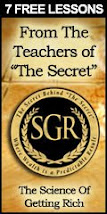The following are excerpts from Florence Wattles letter written to Mrs. Towne, editor of the Nautilus magazine. Florence Wattles writes:
My dear Mrs. Towne,
Your letter of the 14th received . . . perhaps a little later I can write the romantic story of my Father's life and make it really worthwhile. You knew, didn't you, that he lost a good position in the Methodist Church because of his "heresy"?
He met George D. Herron at a convention of reformers in Chicago in 1896 and caught Herron's social vision. I shall never forget the morning he came home. It was Christmas. Mother had put her last dollar into a cuff box and we had placed it beneath an evergreen branch which served for our Christmas tree and which we had illuminated with tallow candles and strung with popcorn. Finally Father came. With that beautiful smile he praised the tree, said the cuff box was just what he had been wanting - and took us all in his arms to tell us of the wonderful social message of Jesus, the message which he later embodied in "A New Christ."
From that day until his death he worked unceasingly to realize the glorious vision of human brotherhood. For years his life was cursed by poverty and the fear of poverty. He was always scheming and planning to get for his family those things which make the abundant life possible.
In the first chapter of "How to be a Genius" he says: "Man's greatest happiness is found in the bestowal of benefits on those he loves." The supreme faith of the man never left him; never for a moment did he lose confidence in the power of the master Intelligence to right every wrong and to give to every man and woman his or her share of the good things of life.
When we came to Elwood (Indiana) three years ago, Father began a Sunday night lectureship inn Indianapolis. This was our only source of income. Later he began to write for Nautilus and to word out his own philosophy. He wrote almost constantly. Then it was that he formed his mental picture. He saw himself as a successful writer, a personality of power, an advancing man, and he began to work toward the realization of this vision . . . . He lived every page of "How to be a Genius." In the last three years he made lots of money, and had good health, except for his extreme frailty.
I have written this hurriedly, but I think it will give you an idea of the life struggle of a great man - his failure and success. His life was truly THE POWERFUL LIFE, and surely we can say, at least in Elwood, "The name of him who loved his fellow men led all the rest."
With all good wishes, I am,Very sincerely,FLORENCE WATTLES
My dear Mrs. Towne,
Your letter of the 14th received . . . perhaps a little later I can write the romantic story of my Father's life and make it really worthwhile. You knew, didn't you, that he lost a good position in the Methodist Church because of his "heresy"?
He met George D. Herron at a convention of reformers in Chicago in 1896 and caught Herron's social vision. I shall never forget the morning he came home. It was Christmas. Mother had put her last dollar into a cuff box and we had placed it beneath an evergreen branch which served for our Christmas tree and which we had illuminated with tallow candles and strung with popcorn. Finally Father came. With that beautiful smile he praised the tree, said the cuff box was just what he had been wanting - and took us all in his arms to tell us of the wonderful social message of Jesus, the message which he later embodied in "A New Christ."
From that day until his death he worked unceasingly to realize the glorious vision of human brotherhood. For years his life was cursed by poverty and the fear of poverty. He was always scheming and planning to get for his family those things which make the abundant life possible.
In the first chapter of "How to be a Genius" he says: "Man's greatest happiness is found in the bestowal of benefits on those he loves." The supreme faith of the man never left him; never for a moment did he lose confidence in the power of the master Intelligence to right every wrong and to give to every man and woman his or her share of the good things of life.
When we came to Elwood (Indiana) three years ago, Father began a Sunday night lectureship inn Indianapolis. This was our only source of income. Later he began to write for Nautilus and to word out his own philosophy. He wrote almost constantly. Then it was that he formed his mental picture. He saw himself as a successful writer, a personality of power, an advancing man, and he began to work toward the realization of this vision . . . . He lived every page of "How to be a Genius." In the last three years he made lots of money, and had good health, except for his extreme frailty.
I have written this hurriedly, but I think it will give you an idea of the life struggle of a great man - his failure and success. His life was truly THE POWERFUL LIFE, and surely we can say, at least in Elwood, "The name of him who loved his fellow men led all the rest."
With all good wishes, I am,Very sincerely,FLORENCE WATTLES








No comments:
Post a Comment